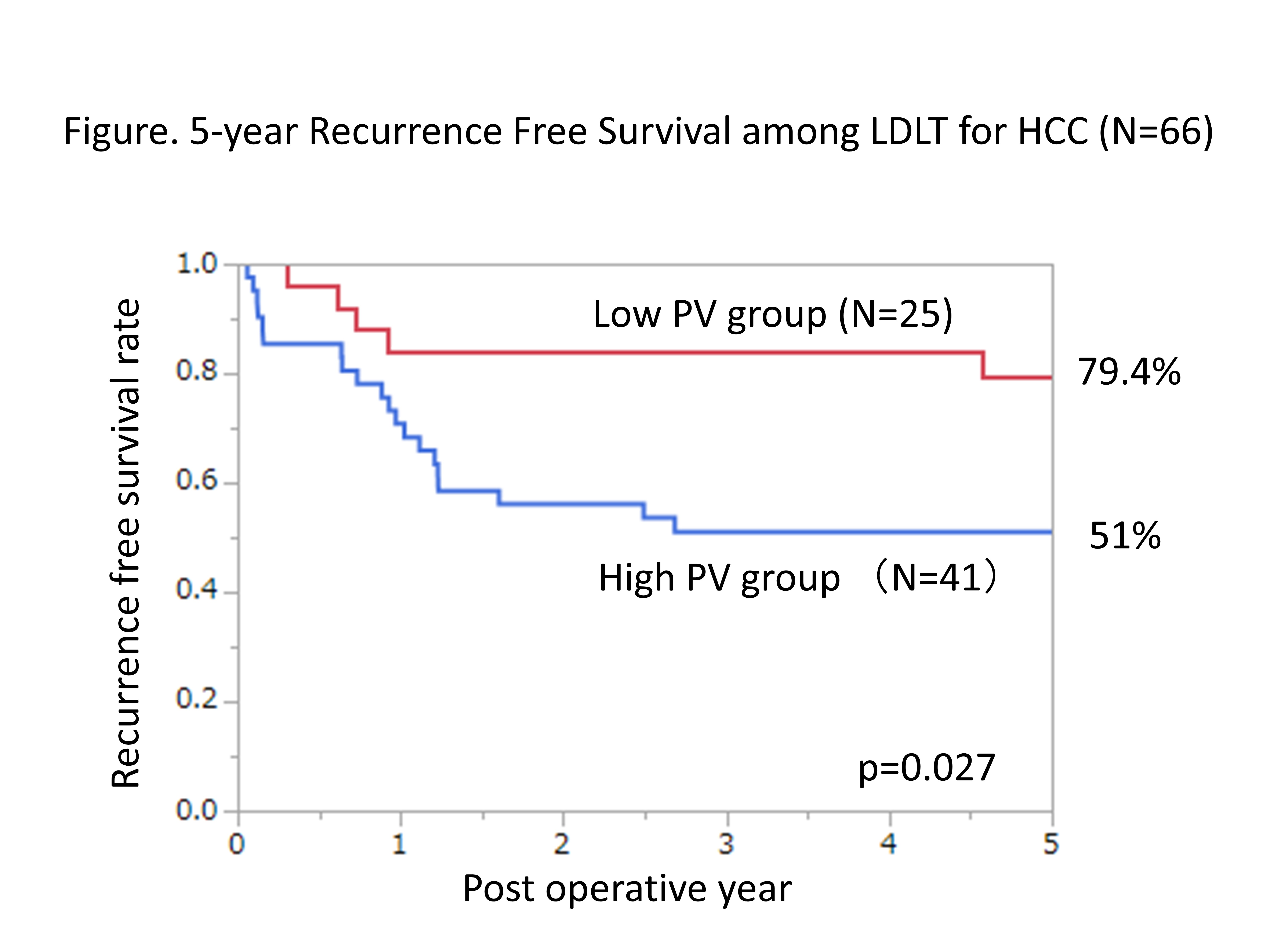Portal Hypertension Inhibits the Antitumor Effect of Liver-Resident NK Cells Through IL-33 Signal
Hiroshima University, Hiroshima, Japan
Meeting: 2022 American Transplant Congress
Abstract number: 1240
Keywords: Liver, Mice, Natural killer cells
Topic: Basic Science » Basic Science » 08 - Innate Immunity; Chemokines, Cytokines, Complement
Session Information
Session Name: Innate Immunity; Chemokines, Cytokines, Complement
Session Type: Poster Abstract
Date: Monday, June 6, 2022
Session Time: 7:00pm-8:00pm
 Presentation Time: 7:00pm-8:00pm
Presentation Time: 7:00pm-8:00pm
Location: Hynes Halls C & D
*Purpose: Portal vein hypertension (PHT) after living donor liver transplantation (LDLT) is known to have associated with poor prognosis. Among patients with hepatocellular carcinoma (N= 66) in our department, the recurrence-free survival rate (RFS) deteriorated in cases with elevated portal pressure. (p<0.05) However, there has been no report on the analysis of the relationship between PHT and anti-tumor immune cells in the liver. We had reported in ATC 2019 and 2020 that liver-resident natural killer cells (lr-NK cells) activity was reduced via IL-33 signal in PHT model mice, depending on tumor necrosis factor-related apoptosis-inducing ligand (TRAIL).
*Methods: To clarify the relationships between IL-33 and hepatic anti-tumor activity, anti-IL-33 treated PHT model mice were evaluated.
*Results: (1) TRAIL expression of lr-NK cells improved in anti-IL-33 treated PHT model in the flow cytometry analysis. (p<0.05, 5 mice per group). (2) Among anti-IL-33 treated PHT models, anti-tumor activity against hepatoma cells (Hepa1.6. cells) maintained even after portal ligation. (p<0.05, 5 mice per group) (3) Anti-IL-33 treatment suppressed intrahepatic metastasis. (p<0.05, 4 mice per group)
*Conclusions: Decreased anti-tumor activity of lr-NK cells could be canceled by a selective inhibition of the IL-33 pathway.
To cite this abstract in AMA style:
Imaoka Y, Ohira M, Sato K, Imaoka K, Nakano R, Tanaka Y, Ohdan H. Portal Hypertension Inhibits the Antitumor Effect of Liver-Resident NK Cells Through IL-33 Signal [abstract]. Am J Transplant. 2022; 22 (suppl 3). https://atcmeetingabstracts.com/abstract/portal-hypertension-inhibits-the-antitumor-effect-of-liver-resident-nk-cells-through-il-33-signal/. Accessed February 28, 2026.« Back to 2022 American Transplant Congress

